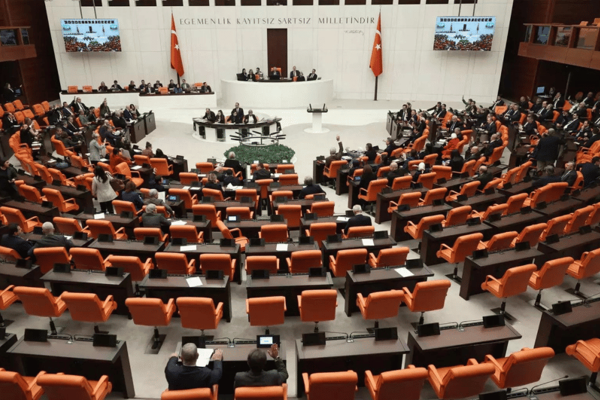Turkish parliament gears up for post-election agenda
ANKARA


After a hiatus prompted by the local elections held on March 31, the Turkish parliament is set to reconvene with both its general assembly and commissions resuming operations on April 16.
The parliament's general assembly is anticipated to kickstart its active legislative agenda following a special session slated for April 23, recognized as National Sovereignty and Children's Day. The day holds significance as it marks the establishment of the Turkish parliament in 1920 and is commemorated with various activities, notably involving children taking over parliamentary roles and discussions centered around children's issues.
Upon the resumption of sessions, several MPs who secured mayoral victories in the local elections are expected to tender their resignations.
Among them are Burcu Köksal, elected mayor in Afyon, Abdurrahman Tutdere in Adıyaman, Hasan Baltacı in Kastamonu and Ahmet Önal in Kırıkkale, all representing the main opposition Republican People's Party (CHP).
The ruling Justice and Development Party (AKP)-led alliance is poised to revisit legislative proposals concerning tourism and energy, previously under scrutiny before the elections.
Amendments to laws governing tourist guides' profession and travel agencies are on the agenda, alongside the reintroduction of an omnibus regulation addressing the energy sector.
Notably, the proposed regulation grants the General Directorate of Mineral Research and Exploration (MTA) authority to conduct searches without the necessity of a preliminary report.
Moreover, parliament is slated to establish an investigative commission to probe the landslide incident at a gold mine in the eastern city of Erzurum's İliç district in February, where nine workers were trapped.
Furthermore, reports indicate that the AKP intends to engage in discussions with various political factions, led by parliamentary leaders. The initiative seeks to garner support for the formulation of a new constitution. The amendment, requiring the backing of at least 37 MPs from other parties to advance it to a referendum, currently lacks the necessary majority in parliament.
